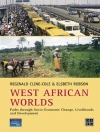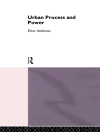This book documents and analyses spatial planning in Ghana, providing a comprehensive and critical discussion of the evolving institutional and legal arrangements that have shaped and defined Ghana’s spatial planning system for more than seven decades; the contemporary policy instruments and mechanisms for articulating and implementing policies and proposals at multiple scales; and the formally established procedures for development management. It covers important themes in contemporary spatial planning discourse, including the evolving meaning, scope and purpose of spatial planning globally; the scales of spatial planning (i.e. national, regional, sub-regional and local); multi-level integration within spatial planning; public participation; the interface between urbanization, sustainable growth management and spatial planning; spatial planning and housing development; integrated spatial development and transportation planning; and spatial planning and the urban informal economy. Intended for undergraduate and graduate students, and academic researchers and practitioners/policy-makers in the multidisciplinary field of spatial planning, it appeals to readers seeking an international perspective on spatial planning systems and practices.
विषयसूची
The Concept of Spatial Planning and the Planning System.- Spatial Planning in Ghana: Historical Origins and Evolution.- Contemporary Planning Systems and Spatial Planning at the National Level.- The Inception of Regional Spatial Planning in Ghana.- Spatial Planning at the Local Level and Development Management.- Policy Integration in Spatial Planning: Mechanisms, Challenges and the Way Forward.- Public Engagement in Spatial Planning: Contemporary Practices and Prospects for Improvement.- Spatial Planning Tools for Sustainable Urban Growth Management.- The Spatial Planning System and Housing Development: Prospects and Approaches.- Transitions Towards Sustainable Urban Transportation: The Role of Spatial Planning.- Spatial Planning and Climate Change.- Concluding Thoughts.
लेखक के बारे में
Ransford A. Acheampong
Ph.D., M.Phil. Cambridge, UK; B.Sc. KNUST, Ghana is a Presidential Academic Fellow at the University of Manchester, UK. Before joining the University of Manchester, he was a Postdoctoral Research Fellow at Trinity College Dublin, The University of Dublin, Ireland. His research focuses on the nexus between spatial development and transportation. Themes covered in his research include comparative study of spatial planning systems; land use and transport interaction modelling; socio-spatial impacts of emerging mobility paradigms (e.g. shared-mobility and autonomous transport); and travel behaviours, focusing on the socio-ecological determinants of sustainable mobility options such as bicycling and walking in cities. He has contributed to planning-related projects for national and international organizations, including as a spatial planning consultant for the Town and Country Planning Department (TCPD) in Ghana and a research consultant for the Organization for Economic Co-operation and Development (OECD).












